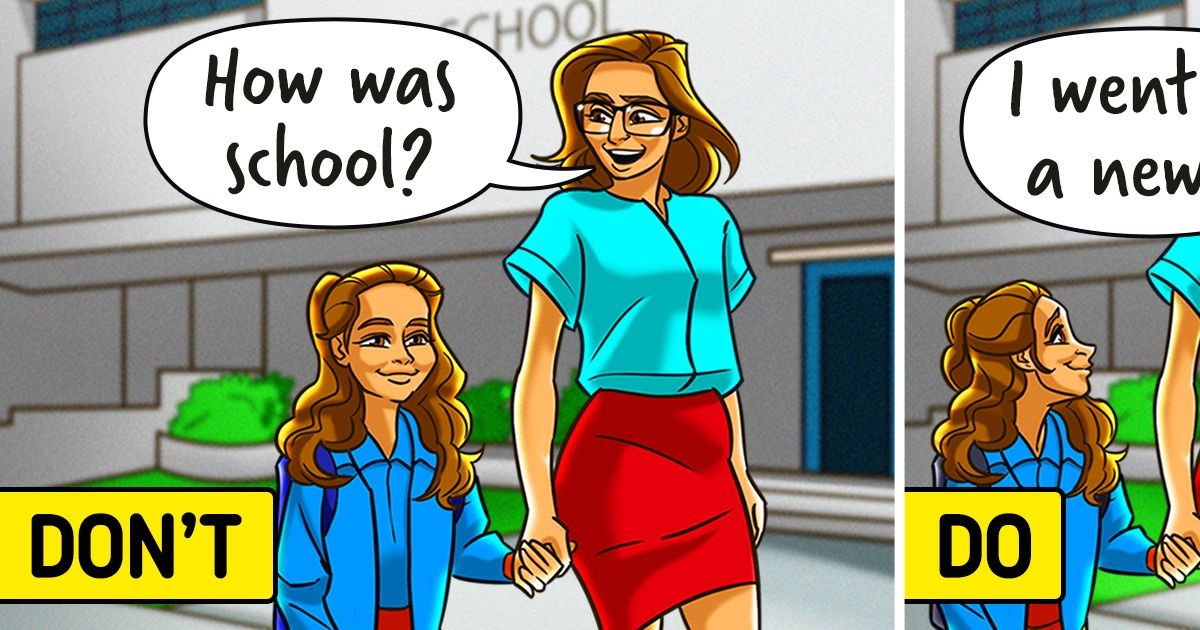7 Things Parents Do That Unintentionally Push Kids Away / Bright Side
Sometimes, even a simple question, like “How was your day?” can make your kid not want to be around you or spend time with you. That’s why parents, from time to time, should step into their kids’ shoes and see what they actually need from them.
We at Bright Side decided to share these 7 useful tips that can help you become closer to your child.
1. You let your mood affect your relationship with your child.
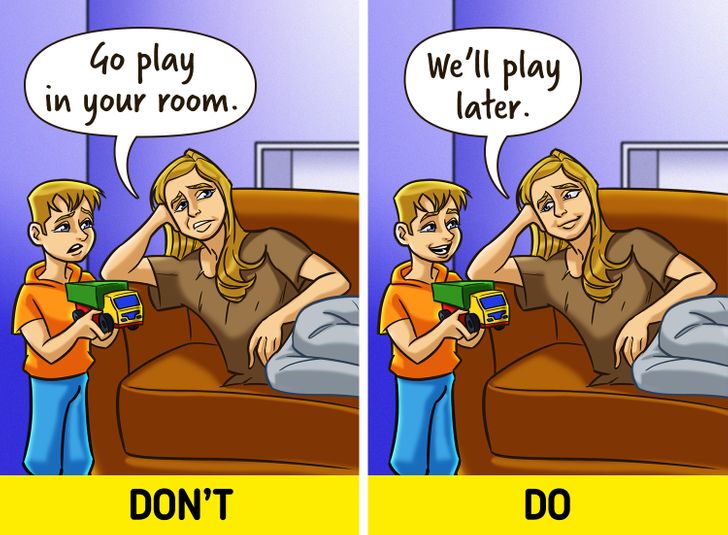
This doesn’t mean that you should hide your emotions from your children, but you should be mindful of how you manage them and try to find ways to deal with stressful times better. Even though we might think that kids are too young to recognize how we feel, they can be very sensitive to parents’ moods.
Ongoing stress can make you have a stormy reaction to anything they ask you to do, and that can make them avoid coming to you in the future. Taking time for yourself and getting into a better headspace can help you provide your kids with the emotional support they need.
2. Multitasking while they try to tell you something important can make them feel less valued.
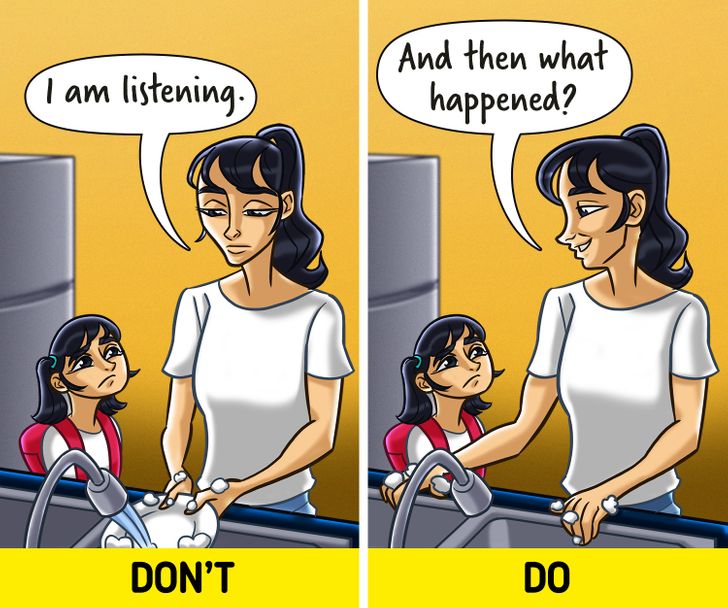
Kids are not always in the mood to talk. But when they come to you, they need your full attention. Otherwise, they’ll think that they aren’t a priority and that they aren’t important to you, which can lead to them keeping their emotions bottled up in the future.
That’s why, when your child comes to you with something important they want to say, stop what you are doing, make eye contact with them, and fully engage in the conversation.
3. Persistently questioning them about their problems can make them feel worse.
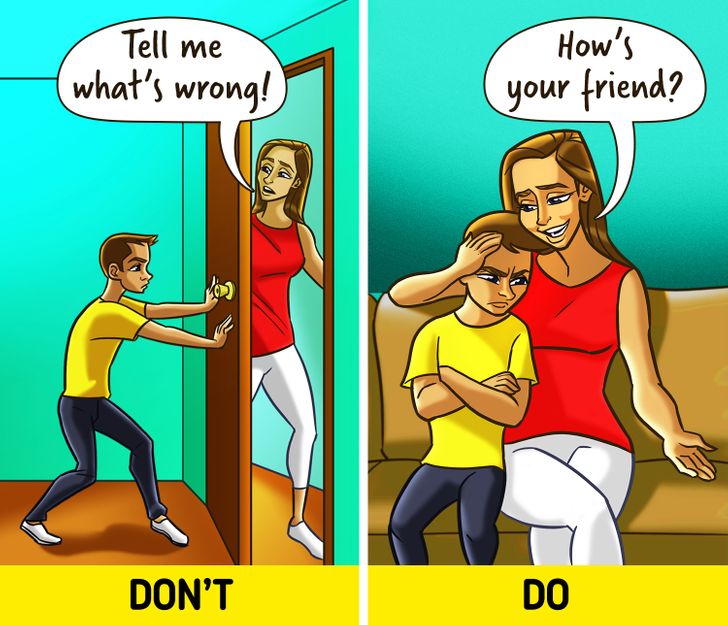
Asking your kid on and on about what’s bothering them can annoy them and make them want to solve their problems alone. We all cope with stress in different ways, and our kids are no exception to that. That’s why, instead of pushing your kid to tell you something they don’t want to, try to ask them less direct, intrusive questions.
4. You aren’t taking your child’s problems seriously.
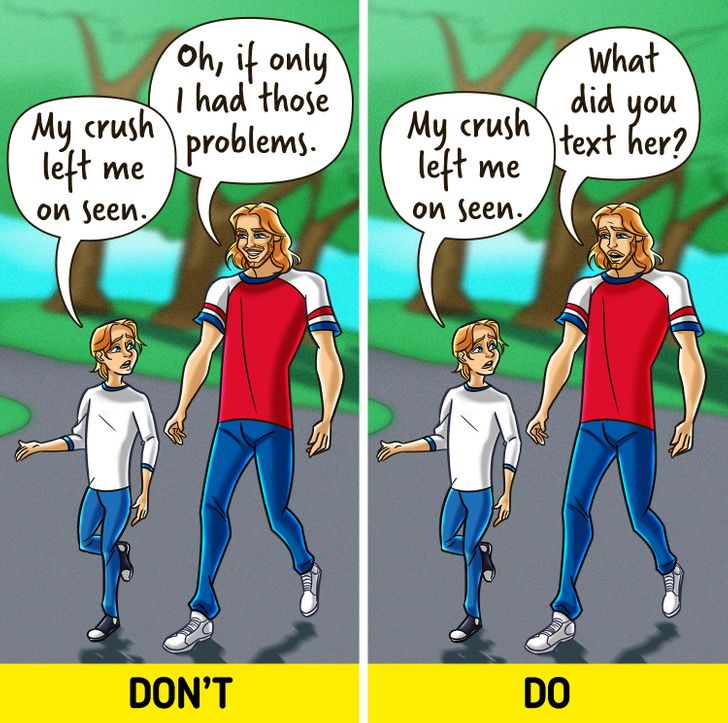
Take your kid seriously, even when their feelings or reactions seem silly to you. Instead of teasing them about the situation they found themselves in, share your own experience or memories to help them cope with the problem better.
5. You tell others something your child confessed to you.

Telling your friends or family something your child told you in confidence can make them keep secrets from you. You should recognize your kid’s emotions and try not to over-share, as that can hurt their feelings and make them anxious.
6. You ask them about their day first.
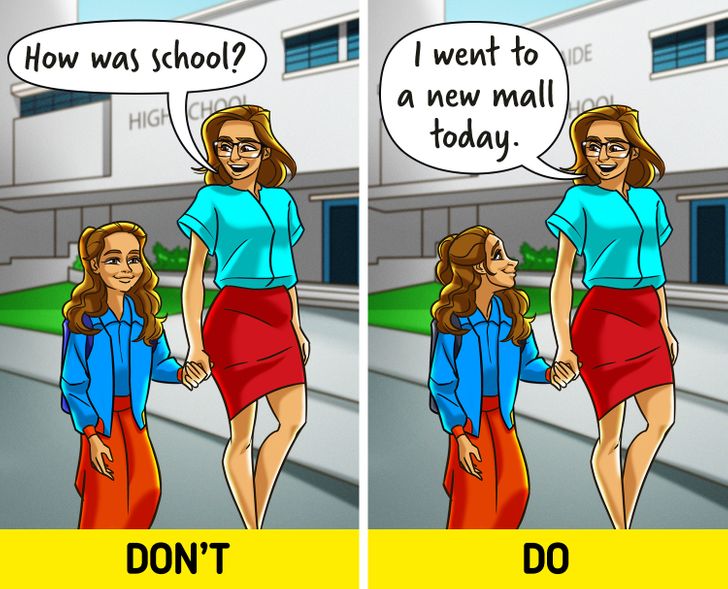
When young children are overwhelmed, their brains become “fried,” and they can’t show maturity when they’re tired. That’s why the best way to make them open up to you about how their day went is by giving them a moment or so to decompress and they’ll come to you by themselves.
If they don’t open up to you, you can try asking them precise questions about their day, like, for example, asking them if the teacher liked their drawing or who made them laugh at school. Another way to make them engage in a conversation with you is to tell them about your day first.
7. You clamp down on them when they show signs of independence.
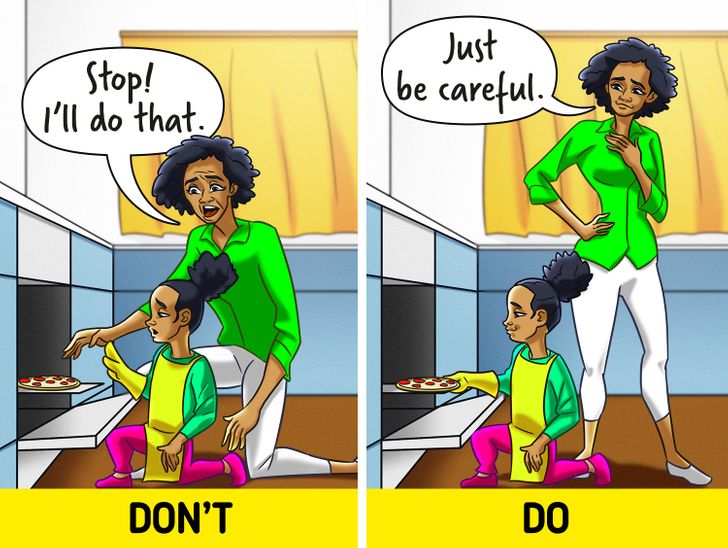
It’s normal and healthy for kids to search for more freedom. When this happens, parents usually see it as a lack of respect or that they are losing control over their kids, which can lead to clamping down on their kids even more.
In this case, instead of setting stricter rules, let your kid make some of the rules on their own and watch how they manage the responsibility. When your kid sees that you trust them, they’ll probably show a more mature and responsible side that you haven’t seen before.
Do you have other tips on how not to push your kids away? Share them in the comment section.
